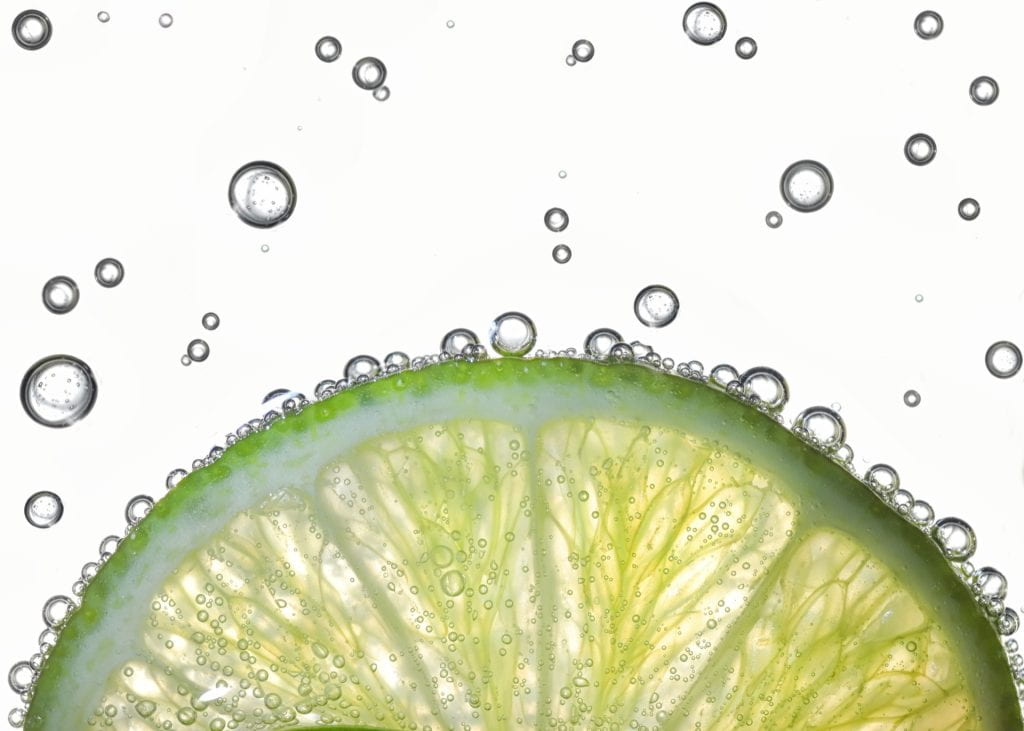When it comes to those healthier choices, simpler is almost always better.
Summer can be a thirsty time, and a cold drink on a hot day is one of the real pleasures of the season. When it comes to healthy ways to stay hydrated this summer – or any other time of year – not all drinks are the same, and it can make a real difference to your health which ones you choose.
The Institute of Medicine set adequate water intake for adult women at around twelve 8-ounce glasses a day and for adult men at around sixteen 8-ounce glasses. Needs, though, can really vary from person to person. Plus, when it’s warmer or when we’re more active in the summer, we need even more water than we normally would. Some of this water can come from the food we eat, but most of it comes from what we drink. That level of intake needed each and every day highlights how important it is to choose healthier drinks – at least a large part of the time.
When it comes to those healthier choices, simpler is almost always better. This means water – still or carbonated – and unsweetened tea and coffee. Simple, though, doesn’t have to mean boring. More than ever, grocery store aisles are filled with unsweetened, flavored fizzy waters. Try a number to see which ones you like best. Or add some zip to a glass of tap water with a splash of lime juice or a slice of cucumber – or both.
Steer clear of sugary drinks, which are filled with calories, have little if any nutritional value and are linked to obesity and weight gain. These include sugary sodas, fruit drinks and energy drinks. Although 100% fruit juice has more nutrients than sodas, it has about the same number of calories, so it should be kept to small amounts – both for kids and adults.
Diet soda and other drinks with artificial sweeteners can feel like healthy alternatives because they have few or zero calories, but it’s actually still unclear how they impact weight and other important aspects of health. So, it’s good to limit them, too, and focus on known healthier options.
When choosing coffee and tea, be careful about specialty options. Whether iced or hot, many are also filled with sugar and calories as well. The best choice is unsweetened tea or black coffee. If you need to add sugar or milk, try to keep it to just a small amount. According to the U.S. Dietary Guidelines for Americans, up to around 400 milligrams of caffeine a day is likely safe for most adults. That’s up to around five 8-ounce cups each day. And growing research links coffee (decaf or regular) with a number of health benefits, including a lower risk of heart disease, diabetes, Parkinson’s disease and some cancers.
The opposite can be said of alcohol. While beer, hard seltzers and other alcoholic drinks can be mainstays of many summer picnics and BBQs, we know more than ever that there’s no healthy level of drinking. Even a small number of drinks each week can increase the risk of some cancers and many other health problems. So, while it’s not necessarily the most popular message, not drinking alcohol is the overall healthiest choice. Alcohol-free beer and wine can be good-tasting, healthier alternatives, and there are a growing number of options. They can, though, still have a number of calories, so try to be mindful of that as well.
Choosing healthier drinks doesn’t mean totally cutting out the less-healthy options you enjoy; it’s more about shifting the balance. When we’ve gotten used to choosing sweetened drinks, it can take some time to get back in touch with how refreshing and enjoyable the healthy drink options can be. So, do it gradually. Cut back slowly on drinks like sugary soda and specialty coffee drinks while experimenting to find healthier options you really like to take their place.
So, let’s all grab one of those healthier drinks and give a toast to health, wellness and a great summer.
It’s your health. Take control.
Dr. Graham A. Colditz, associate director of prevention and control at Siteman Cancer Center at Barnes-Jewish Hospital and Washington University School of Medicine in St. Louis, is an internationally recognized leader in cancer prevention and the creator of the free prevention tool, YourDiseaseRisk.com.
